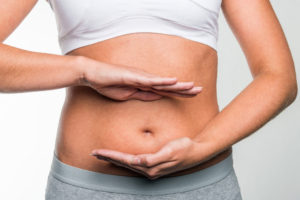 What can you do about a sore colon? Other than getting too frightened—and it can be scary—is to take a deep breath. You might be able to relieve pain in the colon easier than you might think.
What can you do about a sore colon? Other than getting too frightened—and it can be scary—is to take a deep breath. You might be able to relieve pain in the colon easier than you might think.
Your colon is part of your large intestine and essentially the last stop of your digestive system. It’s where leftover salt, water, and vitamins from food are condensed and turned into fecal matter to be excreted.
Advertisement
Sometimes it can hurt. You may feel some, or one, of the following:
- Pain in the abdomen
- Constipation
- Diarrhea
- Gas
- BloatingCramping
- Fatigue
The pain doesn’t always mean there is something serious going on. Causes of colon pain include diet, stress, lifestyle, and even medication. Sometimes altering these things can make a big difference,
Most colon problems are a result of inflammatory bowel diseases like ulcerative colitis, Crohn’s, diverticulitis or irritable bowel syndrome. Generally, these conditions are triggered by diet.
The first step to getting a handle on colon pain is identifying potential triggers. Trigger foods can cause inflammation, leading to symptoms and a sore colon. Common trigger foods includes:
- Fried foods
- Processed meat/red meat
- Refined sugars/processed carbs
- Alcohol
- Coffee
Cutting back on these items may offer some relief from colon pain.
Advertisement
In addition, eating more fiber could help aid digestion, limit inflammation, and get waste out faster in a healthy way. What does “a healthy way” mean? Fiber can add bulk to stool, so it’s less likely to come out as diarrhea.
Limiting trigger foods and eating more fiber may help ease colon pain and other symptoms. You can also try and spend less time sitting, trying to make a habit of getting up for at least five minutes out of every hour to move around.
You may be able to get a handle on colon pain by taking these steps. As always, consult with your doctor for a targeted plan.
